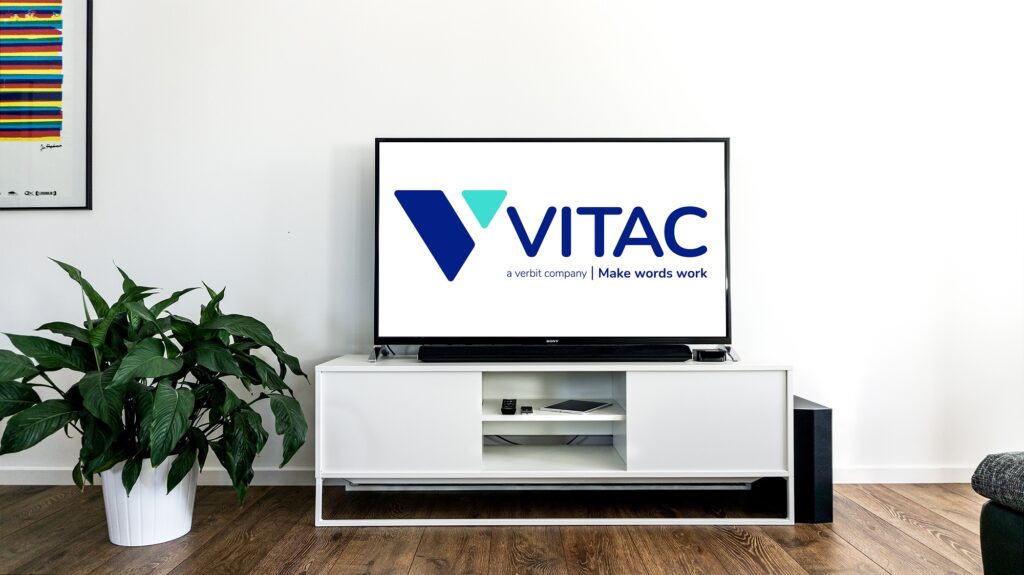Today we launch a new monthly feature at VITAC.com that highlights recent news, updates, events, and rulings regarding the Americans with Disabilities Act. This month we look at recent news on emergency interpreters, website accessibility challenges, and ADA lawsuits.
Bomb Cyclone Accessibility Concerns
A Colorado organization voiced concerns over the lack of sign language interpreters at emergency press conferences during the “bomb cyclone” that dropped nearly a foot of snow on parts of the state earlier this month.
The blizzard that blew through the state closed highways, cut power, and left motorists and vehicles stranded on roads.
Though television news reports included captions alerting residents of the storm and its aftermath, the Rocky Mountain ADA – an organization that provides information, guidance, and training on the Americans with Disabilities Act (ADA) to individuals and organizations in Colorado, Montana, North Dakota, South Dakota, Utah, and Wyoming – said the lack of sign language interpreters at emergency management news conferences was worrisome.
Officials from the Pikes Peak Regional Office of Emergency Management said that although they strive to get their message out to the entire community, they did not have time to get an interpreter and believed it unsafe to call in additional people because of the storm.
The emergency management office, which has employed interpreters for conferences in the past as required by the ADA, said it would continue to work to provide reasonable accommodations for interpreters, while also considering the safety of both the public and those responding to an event.
ADA and Website Accessibility: Corporations
The impact of the December 2017 decision by the United States Department of Justice (DOJ) to withdraw its rulemaking and technical guidance for accessible websites under the ADA’s Title III still is being felt in courtrooms today.
The Ninth Circuit Court of Appeals in San Francisco recently ruled that Domino’s Pizza, LLC is required to make its website accessible to blind customers under the Americans with Disabilities Act.
The ruling overturned a U.S. District Court decision that initially dismissed the case on the grounds that the government had not issued regulations about what steps websites and mobile apps had to take to become ADA compliant.
The appeals panel reversed the lower court ruling, saying that the lack of DOJ guidance did not mean that the pizza chain escaped its responsibility to provide “full and equal enjoyment” of its services to customers who are blind.
The case – Robles v. Domino’s Pizza, LLC – was filed by Guillermo Robles, who is blind and navigates the internet using screen-reading software that vocalizes websites’ visual information. Robles claimed Domino’s violated ADA laws after he could not order a pizza online because, he contended, the company had not designed its website and apps software so that he could read them.
The case will go back to district court, which must now issue a fresh ruling based solely on whether the website and mobile app adequately communicate services to blind users. Domino’s has filed for a 60-day extension (through June 14) in which to review the appeals court judgment.
ADA and Website Accessibility: Local Government
In other website accessibility news, Florida’s Volusia County has agreed to pay $25,500 to resolve a lawsuit over its lack of website accessibility, and more than $6,000 to update its domain and make its documents accessible to blind visitors.
The action follows nearby Flagler County’s agreement to pay $15,700 to settle a lawsuit that claimed its website violates the Americans with Disabilities Act because it wasn’t usable for blind visitors.
Other Florida communities – including Lake Mary, Longwood, and Oviedo – have temporarily removed many public documents from their websites to protect themselves from similar ADA suits. Officials in those cities say they will re-post the electronic documents once they can ensure that the information is accessible to people with disabilities via such things as screen-reading programs and captioned video content.
Increase in ADA Lawsuits
Title III of the ADA prohibits discrimination based on disability in places of public accommodation – businesses that are generally open to the public and that fall into one of 12 categories listed in the ADA, such as restaurants, recreational facilities, and movie theaters. Title III also requires newly constructed or altered places of public accommodation and commercial facilities to comply with the ADA standards.
The number of ADA Title III lawsuits filed in federal court topped more than 10,000 in 2018, an increase of 34% from 2017 when the number was 7,663, according to a report by law firm Seyfarth Shaw.
Though the report counts many lawsuits regarding physical barriers among its numbers, one of the larger spikes came from federal cases alleging inaccessible websites. Seyfarth reports that the number of website accessibility suits filed in federal courts in 2018 rose to at least 2,258 – increasing by 177% from the 814 lawsuits fled in 2017.
Plaintiffs filed suits in 14 states, with Florida being among the busiest jurisdictions with 576. Florida also ranked high among states with the most ADA Title III lawsuits overall in 2018.
Though many ADA website suits are filed on behalf of blind or low-vision individuals, they demonstrate overall a lack of tolerance in the public for businesses, organizations, and municipalities offering non-accessible services. From a legal perspective, the recent decisions show that courts are ruling in favor of plaintiffs in ADA suits and in support of ADA compliance.
How VITAC Can Help
Ultimately, there is no substitute for being 100% ADA compliant. Providing accessible solutions for all customers, clients, and employees – whether it be via captioned content, wheelchair access, or accessible website design – not only satisfies ADA requirements but, perhaps just as important, is good business and simply the right thing to do.
A full-service accessible media services company, VITAC provides captions for corporate boardrooms, school classrooms, sold-out sporting events, and everything in between. We literally helped write the book on caption accuracy, and worked with the Federal Communications Commission to help create the Closed Caption Quality Best Practices guide.
Our services include live and offline captioning, Spanish captioning, and translation into more than 50 languages as well as subtitling, audio description, and encoding services.




